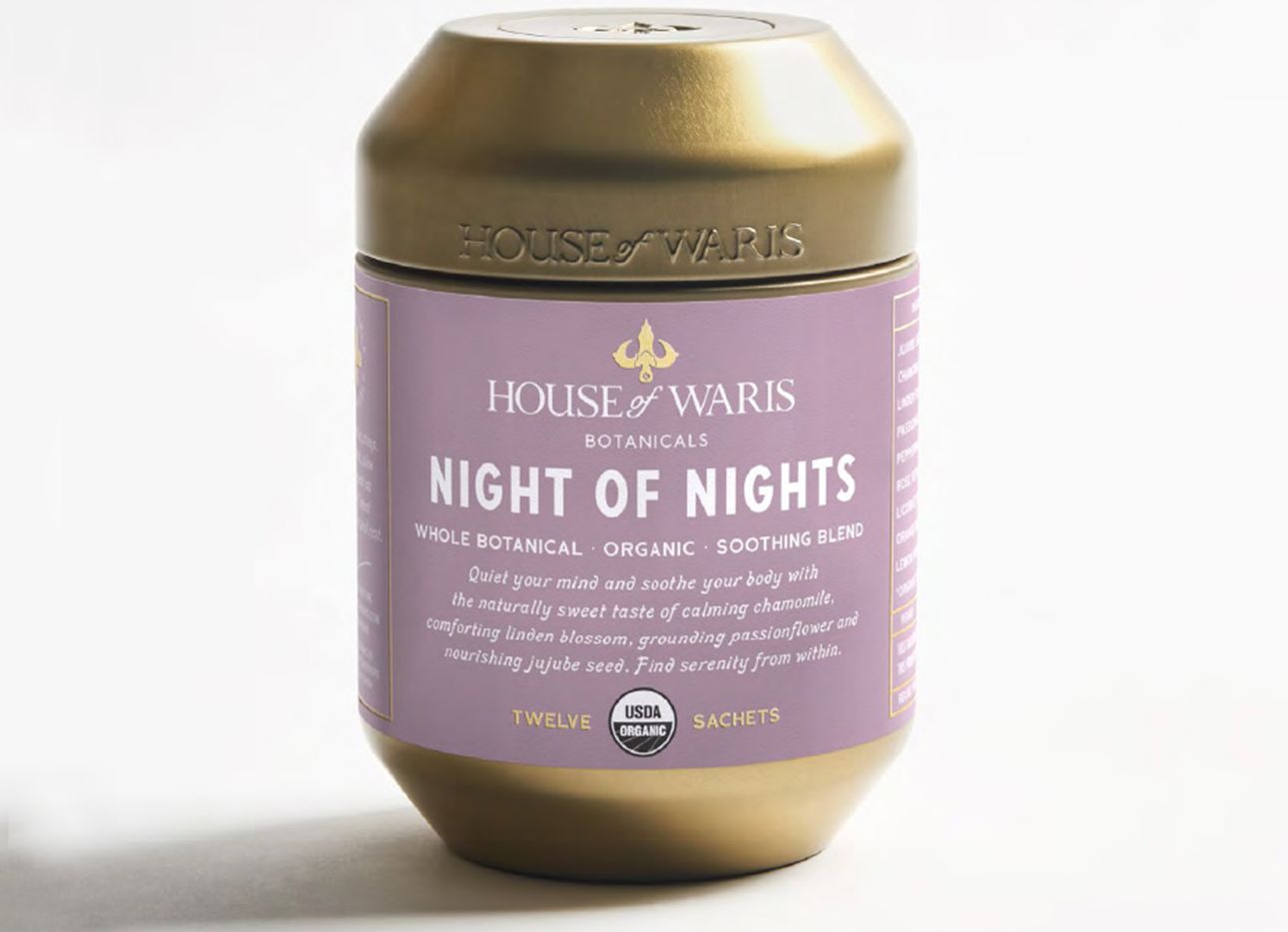
Waris Ahluwalia on His Buzzy New Tea Brand
The New York City–based designer, actor, and man-about-town Waris Ahluwalia tells us about his company, House of Waris—which specializes in tea and botanicals, with a café in Manhattan’s Chelsea neighborhood and a team of herbalists—and why it’s becoming more and more important to slow down.
“I look at tea as the original wellness product. It’s the longest-standing, longest-running—it’s not a latte, it’s not a smoothie, it’s not a powder. It’s teas and herbs, which, in their natural form, have healed us for centuries and across borders. That’s all we’re saying: that we’ve always had the answers, and we’ve quickly forgotten them because we’ve been conditioned by society, big business, government, and institutions to always look for the short answer. We, as a culture, thrive on that idea of, ‘What’s the quickest way?’ and ‘How can I hack my way to this desired effect?’ My work has always been addressing that.
All of this is a study. All of this is an exploration of looking at herbs, looking at teas, looking at what they can do. Someone told me recently they had been having our Night of Nights every night, and it’s helped them tremendously. For better sleep, rest, and relaxation, the tea in itself is great. But what’s also quite amazing is to make that into a ritual: to allow yourself that time to take this, and to enjoy it.
We’re about products that are the highest quality, organically sourced, whole botanical—whole flower, whole leaf, whole root ingredients. We’re also about beauty. Instead of going into your cupboard and opening a cardboard box, which will just be thrown out and create more waste, you open up a beautiful tin that has the bag in it, and it makes you smile because beauty is a part of well-being. Beauty is a part of this conversation; it’s not removed from it. Stendhal said, to paraphrase, ‘Beauty is the promise of happiness.’
Our work is built on the premise and the science of herbal studies and their positive effect over an extended period of time. When you take herbs, they have a beneficial effect on your whole body, on your overall well-being. Our bodies are not composed of single, individual, independent organs. As in the tradition of TCM [traditional Chinese medicine] or Ayurveda, everything is connected: You can’t just address one organ, you have to address the whole system. It’s also about slowing down. Pausing. Giving yourself that moment.
Tea has also always brought people together. When someone says to you, ‘Let’s have a coffee,’ they mean, ‘Let’s talk for five minutes.’ And when someone says to you, ‘Let’s have a tea,’ they’re saying, ‘Let’s get together and spend a little time.’ Slowing down is about addressing what the U.N. has called the 21st-century epidemic: stress.”